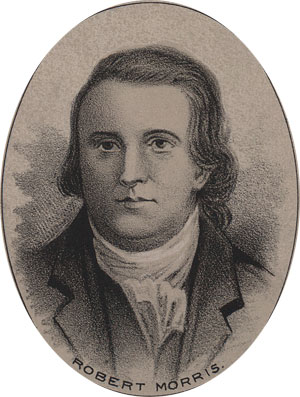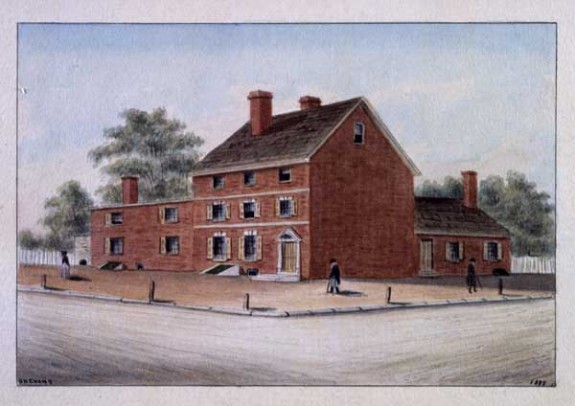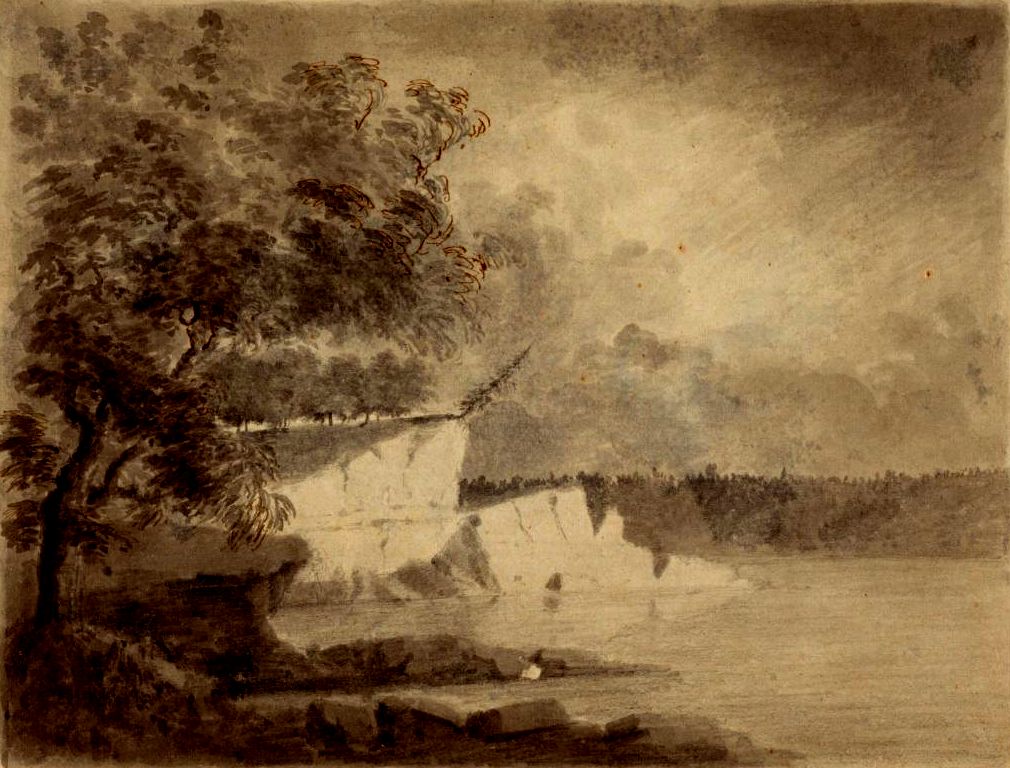|
Illinois-Wabash Company
The Illinois-Wabash Company, formally known as the United Illinois and Wabash Land Company, was a company formed in {{start date and age, 1779, p=y from the merger of the Illinois Company and the Wabash Company. The two companies had been established in order to purchase land from Native Americans in the Illinois Country, a region of North America acquired by Great Britain in 1763. The Illinois Company purchased two large tracts of land in 1773; the Wabash Company purchased two additional tracts in 1775. Because the Royal Proclamation of 1763 forbade private purchase of Native American lands, Great Britain refused to recognize these transactions. Following the outbreak of the American Revolutionary War, officials of the merged Illinois-Wabash Company appealed to both Virginia (which claimed the Illinois Country) and to the United States to recognize their land purchases, but were unsuccessful. After the United States bought the land in question from Native Americans and resold ... [...More Info...] [...Related Items...] OR: [Wikipedia] [Google] [Baidu] |
Pratt–Yorke Opinion
The Pratt-York opinion also known as the Camden-Yorke opinion was a 1757 official legal opinion issued jointly by Charles Pratt, 1st Earl Camden, the Attorney General for England and Wales, and Charles Yorke, the Solicitor General for England and Wales (and former counsel to the East India Company), regarding the legality of land purchases by the British East India Company from the rulers of the princely states in British India. In large part due to this opinion, India is one of the few common law jurisdiction which has rejected the doctrine of aboriginal title. Origin The opinion was issued in response to a petition from the British East India Company. The company had previously been involved in land disputes with regular army officers—both over land acquired by purchase and land acquired by conquest. The opinion was reported on 24 December 1757.Bowen, 2002, p. 54. Text The opinion began with the least controversial portion: that territory gained by conquest was validly he ... [...More Info...] [...Related Items...] OR: [Wikipedia] [Google] [Baidu] |
Samuel Chase
Samuel Chase (April 17, 1741 – June 19, 1811) was a Founding Father of the United States, a signatory to the Continental Association and United States Declaration of Independence as a representative of Maryland, and an Associate Justice of the United States Supreme Court. He was impeached by the House of Representatives on grounds of letting his partisan leanings affect his court decisions but was acquitted by the Senate and remained in office. Born near Princess Anne, Maryland, Chase established a legal practice in Annapolis, Maryland. He served in the Maryland General Assembly for several years and favored independence during the American Revolution. He won election to the Continental Congress before serving on the Baltimore District Criminal Court and the Maryland General Court. In 1796, President George Washington appointed Chase to the United States Supreme Court. After the 1800 elections, President Thomas Jefferson and the Democratic-Republicans sought to weaken Fede ... [...More Info...] [...Related Items...] OR: [Wikipedia] [Google] [Baidu] |
Silas Deane
Silas Deane (September 23, 1789) was an American merchant, politician, and diplomat, and a supporter of American independence. Deane served as a delegate to the Continental Congress, where he signed the Continental Association, and then became the first foreign diplomat from the United States to France, where he helped negotiate the 1778 Treaty of Alliance that allied France with the United States during the American Revolutionary War. Near the end of the war, Congress charged Deane with financial impropriety, and the British intercepted and published some letters in which he had implied that the American cause was hopeless. After the war, Deane lived in Ghent and London and died under mysterious circumstances while attempting to return to America. Early life and family Deane was born on in Groton, Connecticut, to blacksmith Silas Deane and his wife Hannah Barker. The younger Silas was able to obtain a full scholarship to Yale and graduated in 1758. In April 1759, he was hired ... [...More Info...] [...Related Items...] OR: [Wikipedia] [Google] [Baidu] |
Robert Morris (merchant)
Robert Morris Jr. (January 20, 1734May 8, 1806) was an English-born merchant and a Founding Father of the United States. He served as a member of the Pennsylvania legislature, the Second Continental Congress, and the United States Senate, and he was a signer of the Declaration of Independence, the Articles of Confederation, and the United States Constitution. From 1781 to 1784, he served as the Superintendent of Finance of the United States, becoming known as the "Financier of the Revolution." Along with Alexander Hamilton and Albert Gallatin, he is widely regarded as one of the founders of the financial system of the United States. Born in Liverpool, Morris migrated to North America in his teens, quickly becoming a partner in a successful shipping firm based in Philadelphia. In the aftermath of the French and Indian War, Morris joined with other merchants in opposing British tax policies such as the 1765 Stamp Act. By 1775 he was the richest man in America. After the outbr ... [...More Info...] [...Related Items...] OR: [Wikipedia] [Google] [Baidu] |
James Wilson (Founding Father)
James Wilson (September 14, 1742 – August 21, 1798) was a Scottish-born American Founding Father, legal scholar, jurist and statesman who served as an associate justice of the United States Supreme Court from 1789 to 1798. Wilson was elected twice to the Continental Congress, was a signatory of the Declaration of Independence, and was a major participant in drafting the U.S. Constitution. A leading legal theorist, he was one of the first four Associate Justices appointed to the Supreme Court by George Washington. In his capacity as the first professor of law at the College of Philadelphia (later to become the University of Pennsylvania), he taught the first course on the new Constitution to President Washington and his Cabinet in 1789 and 1790. Born near Leven, Fife, Scotland, Wilson emigrated to Philadelphia in 1766 and became a teacher at the College of Philadelphia. After studying law under John Dickinson, he was admitted to the bar and set up legal practice in Re ... [...More Info...] [...Related Items...] OR: [Wikipedia] [Google] [Baidu] |
Colony And Dominion Of Virginia
The Colony of Virginia, chartered in 1606 and settled in 1607, was the first enduring English colony in North America, following failed attempts at settlement on Newfoundland by Sir Humphrey GilbertGilbert (Saunders Family), Sir Humphrey" (history), ''Dictionary of Canadian Biography'' Online, University of Toronto, May 2, 2005 in 1583 and the colony of Roanoke (further south, in modern eastern North Carolina) by Sir Walter Raleigh in the late 1580s. The founder of the new colony was the Virginia Company, with the first two settlements in Jamestown on the north bank of the James River and Popham Colony on the Kennebec River in modern-day Maine, both in 1607. The Popham colony quickly failed due to a famine, disease, and conflicts with local Native American tribes in the first two years. Jamestown occupied land belonging to the Powhatan Confederacy, and was also at the brink of failure before the arrival of a new group of settlers and supplies by ship in 1610. Tobacco became ... [...More Info...] [...Related Items...] OR: [Wikipedia] [Google] [Baidu] |
George Rogers Clark
George Rogers Clark (November 19, 1752 – February 13, 1818) was an American Surveying, surveyor, soldier, and militia officer from Virginia who became the highest-ranking American patriot military officer on the northwestern frontier during the American Revolutionary War. He served as leader of the militia (United States), militia in Kentucky (then part of Virginia) throughout much of the war. He is best known for his captures of Kaskaskia, Illinois, Kaskaskia (1778) and Vincennes, Indiana, Vincennes (1779) during the Illinois Campaign, which greatly weakened Kingdom of Great Britain, British influence in the Northwest Territory. The British ceded the entire Northwest Territory to the United States in the Treaty of Paris (1783), 1783 Treaty of Paris, and Clark has often been hailed as the "Conqueror of the Old Northwest". Clark's major military achievements occurred before his thirtieth birthday. Afterward, he led militia in the opening engagements of the Northwest Indian ... [...More Info...] [...Related Items...] OR: [Wikipedia] [Google] [Baidu] |
Piankeshaw
The Piankeshaw, Piankashaw or Pianguichia were members of the Miami tribe who lived apart from the rest of the Miami nation, therefore they were known as Peeyankihšiaki ("splitting off" from the others, Sing.: ''Peeyankihšia'' - "Piankeshaw Person"). When European settlers arrived in the region in the 1600s, the Piankeshaw lived in an area along the south central Wabash River that now includes western Indiana and Illinois. Their territory was to the north of Kickapoo (around Vincennes) and the south of the Wea (centered on Ouiatenon). They were closely allied with the Wea, another group of Miamis. The Piankashaw were living along the Vermilion River in 1743. History The ''first'' ''Peeyankihšionki'' or ''Piankeshaw Village'' ("Place of the Piankashaw") was at the confluence of the Peeyankihšiaki Siipiiwi ("River of the Peeyankihšiaki/Piankashaw, i.e. Vermilion River") and the Waapaahšiki Siipiiwi ("white shining", "pure white" or "River over white stones, i.e. Wabash Riv ... [...More Info...] [...Related Items...] OR: [Wikipedia] [Google] [Baidu] |
Wabash River
The Wabash River (French: Ouabache) is a U.S. Geological Survey. National Hydrography Dataset high-resolution flowline dataThe National Map accessed May 13, 2011 river that drains most of the state of Indiana in the United States. It flows from the headwaters in Ohio, near the Indiana border, then southwest across northern Indiana turning south near the Illinois border, where the southern portion forms the Indiana-Illinois border before flowing into the Ohio River. It is the largest northern tributary of the Ohio River and third largest overall, behind the Cumberland and Tennessee rivers. From the dam near Huntington, Indiana, to its terminus at the Ohio River, the Wabash flows freely for . Its watershed drains most of Indiana. The Tippecanoe River, White River, Embarras River and Little Wabash River are major tributaries. The river's name comes from a Miami word meaning "water over white stones", as its bottom is white limestone, now obscured by mud. The Wabash is the ... [...More Info...] [...Related Items...] OR: [Wikipedia] [Google] [Baidu] |
John Murray, 4th Earl Of Dunmore
John Murray, 4th Earl of Dunmore (1730 – 25 February 1809), known as Lord Dunmore, was a British nobleman and colonial governor in the American colonies and The Bahamas. He was the last colonial governor of Virginia. Lord Dunmore was named governor of the Province of New York in 1770. He succeeded to the same position in the Colony of Virginia the following year, after the death of Norborne Berkeley, 4th Baron Botetourt. As Virginia's governor, Dunmore directed a series of campaigns against the trans-Appalachian Indians, known as Lord Dunmore's War. He is noted for issuing a 1775 document ( Dunmore's Proclamation) offering freedom to any enslaved person who fought for the Crown against the Patriots in Virginia. Dunmore fled to New York after the Burning of Norfolk in 1776 and later returned to Britain. He was Governor of the Bahama Islands from 1787 to 1796. Family and early life Murray was born in Taymouth, Scotland, the eldest son of William Murray, 3rd Earl of ... [...More Info...] [...Related Items...] OR: [Wikipedia] [Google] [Baidu] |

_and_her_daughters_Anne_and_Matilda_Chase.jpg)
.jpg)




